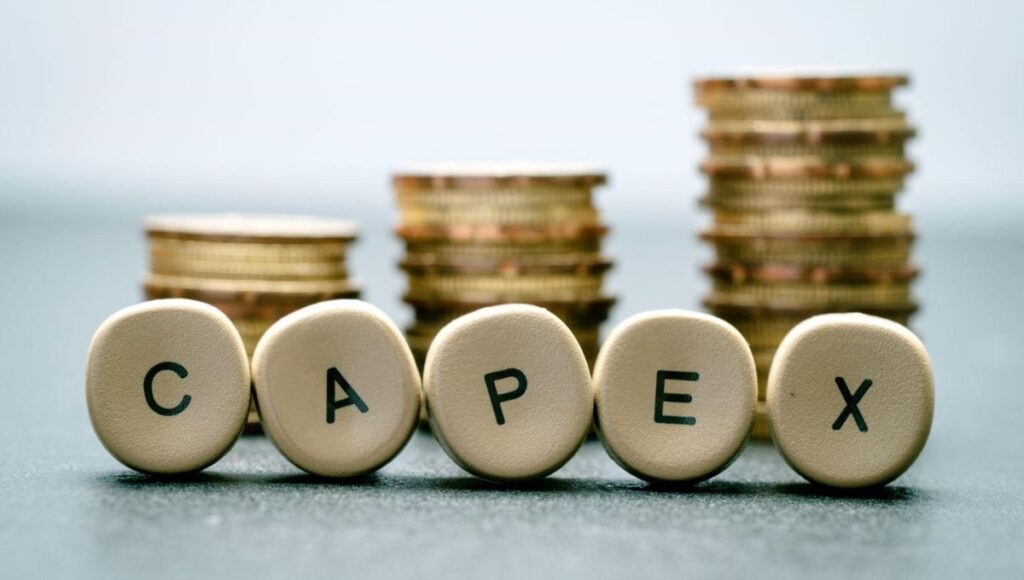Table of Contents
ToggleAre Laptops Capex or Opex?

The classification of laptops as capital expenditures (CAPEX) or operating expenses (OPEX) can have a significant impact on a company’s financial statements.
- CAPEX are long-term assets that are expected to provide benefits for multiple years. They are recorded on the balance sheet and depreciated over their useful life.
- OPEX are expenses that are incurred on a regular basis, such as rent, utilities, and salaries. They are expensed in the period in which they are incurred.
In the case of laptops, the decision of whether to classify them as CAPEX or OPEX is often based on the expected useful life of the asset. If a laptop is expected to be used for more than one year, it is typically classified as a CAPEX. If a laptop is expected to be used for less than one year, it is typically classified as an OPEX. There are a number of factors that can influence the expected useful life of a laptop, such as:
- The quality of the laptop
- The type of work that will be done on the laptop
- The company’s upgrade cycle
For example, a high-quality laptop that is used for light office work may have a useful life of five years or more. However, a low-quality laptop that is used for demanding tasks such as video editing may have a useful life of only two or three years. Companies that are concerned about the impact of CAPEX on their balance sheet may choose to classify laptops as OPEX. This can be done by leasing laptops instead of purchasing them outright. Lease payments are typically classified as OPEX.
The decision of whether to classify laptops as CAPEX or OPEX is a complex one. Companies should consult with their accountants to determine the best classification for their specific circumstances.
What is CapEx?

Capex, short for capital spending, is money a business invests in things that will pay off later. These are long-lasting assets like buildings, machines, or tools, not everyday stuff like rent or supplies. Think of it like planting a seed: you spend money now on something that will grow and become valuable in the future. Capex could mean buying new stuff, fixing up old stuff to make it more valuable, or even building something new from scratch.
Does that capture the essence of the original text while using different words and sentence structure?
What is OpEx?

Conversely, operating expenditures, or Opex, are those costs that are necessary for the day-to-day operations of the firm. Examples of these costs include labor, utilities, maintenance, and repairs. The money a company spends on operations to convert inventory into throughput is known as opex. Depreciation of equipment and plants utilized in the production process is another item included in operating expenditures.
Benefits of classifying laptops as CAPEX
- Spreading out the cost: Classifying laptops as CAPEX allows companies to spread out the cost of the purchase over the useful life of the asset. This can help to improve cash flow.
- Tax benefits: Companies can deduct depreciation on CAPEX assets over their useful life. This can reduce taxable income.
Benefits of classifying laptops as OPEX
- Improved budgeting: Classifying laptops as OPEX can help companies to improve their budgeting accuracy. OPEX costs are typically more predictable than CAPEX costs.
- Reduced risk: Classifying laptops as OPEX can help to reduce the risk of obsolescence. If a laptop becomes obsolete before the end of its useful life, the company can simply stop paying for it.
CapEx vs OpEx
| Feature | CapEx | OpEx |
|---|---|---|
| Cost Model | Upfront purchase cost | Ongoing monthly or per-use fee |
| Ownership | Company owns the laptop | Provider owns the laptop |
| Depreciation | Depreciated over expected lifespan (3-5 years) | Not depreciated |
| Flexibility | Can upgrade or customize laptop | Limited to provider’s offerings |
| Control | Full control over hardware and software | Limited control, subject to provider’s policies |
| Predictability | Fixed monthly cost | Potential for cost fluctuations depending on usage |
| Scalability | Easy to add or remove laptops as needed | Scalability built into subscription model |
| Risk | Responsible for maintenance and repairs | Provider handles maintenance and repairs |
| Typical Use Cases | Large company purchases, fixed employee assignments | Startups, remote workforces, flexible projects |
What are the Similarities Between CapEx and OpEx?
CapEx (capital expenditures) and OpEx (operating costs) have some major similarities despite their main differences:
- Outlays of Cash: Both CapEx and OpEx represent cash spent by a company. Whether acquiring a new machine (CapEx) or paying rent (OpEx), both involve utilizing the company’s financial resources.
- Purchasing Process: Though their purposes differ, the process of acquiring CapEx and OpEx can be similar. Companies typically follow a purchasing procedure involving solicitation of bids, contracting, legal review, payment, and finally, receipt of the purchase.
- Impact on Net Income: Both CapEx and OpEx ultimately reduce a company’s net income, albeit in different ways. OpEx is expensed immediately, lowering current profits. CapEx, on the other hand, is depreciated over the asset’s life, meaning its cost is spread out over several years, impacting multiple income statements.
- Planning and Management: Companies need to plan and manage both CapEx and OpEx strategically. Careful budgeting and forecasting are crucial for both types of expenses to ensure sufficient financial resources and optimal allocation.
- Business Functions: While separated for accounting purposes, CapEx and OpEx work together to keep a business running. OpEx covers day-to-day operations, while CapEx provides the assets necessary for those operations. Both are needed for a company to function effectively.
Faq 'S
Is a laptop a capital purchase?
If they meet the right requirements, technology and computer equipment—including servers, laptops, desktop computers, and peripherals—would be considered capital expenditures.
Is computer software CapEx or OpEx?
Annual maintenance expenses are OPEX, whereas enterprise software licensing are CAPEX. Technical design is CAPEX, whereas functional design is OPEX.
Is laptop a capital asset?
A computer is categorized as a business’s capital asset. Generally, the business is able to claim capital allowances on machinery and plant.
Is OpEx better than CapEx?
Generally speaking, operational expenses are tax deductible as long as they are “ordinary and customary costs” incurred to maintain the business. However, capital expenses might be depreciated over time to offset the cost of the investment, so they are not instantly deductible.
What type of expense is a laptop?
The computer is probably considered an office equipment expenditure if it is utilized for routine office tasks like word processing, emailing, and web surfing.
Related Posts
Troubleshooting – A D3d11-Compatible GPU Is Required To Run The Engine
When trying to launch a game or program that needs...
Read More5 Gaming Laptops That Don’t Look Like Gaming Laptops
RGB lighting, aggressive angles, and...
Read MoreREFERENCE: Wikipedia







